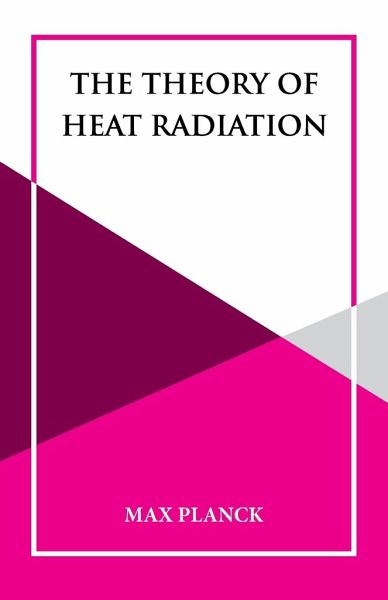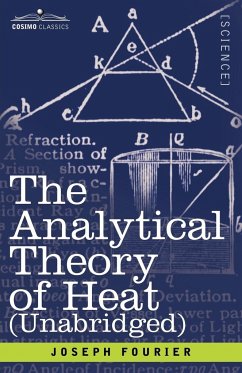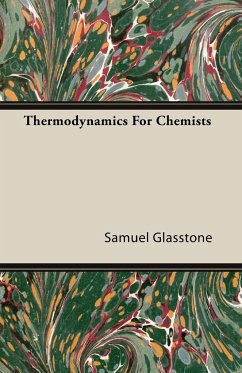
The Theory of Heat Radiation
Versandkostenfrei!
Versandfertig in 1-2 Wochen
15,99 €
inkl. MwSt.
Weitere Ausgaben:

PAYBACK Punkte
8 °P sammeln!
PART I FUNDAMENTAL FACTS AND DEFINITIONS I. General Introduction II. Radiation at Thermodynamic Equilibrium. Kirchhoff's Law Black Radiation PART II DEDUCTIONS FROM ELECTRODYNAMICS AND THERMODYNAMICS I. Maxwell's Radiation Pressure II. Stefan-Boltzmann Law of Radiation III. Wien's Displacement Law IV. Radiation of Any Arbitrary Spectral Distribution of Energy. Entropy and Temperature of Monochromatic Radiation V. Electrodynamical Processes in a Stationary Field of Radiation PART III ENTROPY AND PROBABILITY I. Fundamental Definitions and Laws. Hypothesis of Quanta II. Ideal Monatomic Gases III....
PART I FUNDAMENTAL FACTS AND DEFINITIONS I. General Introduction II. Radiation at Thermodynamic Equilibrium. Kirchhoff's Law Black Radiation PART II DEDUCTIONS FROM ELECTRODYNAMICS AND THERMODYNAMICS I. Maxwell's Radiation Pressure II. Stefan-Boltzmann Law of Radiation III. Wien's Displacement Law IV. Radiation of Any Arbitrary Spectral Distribution of Energy. Entropy and Temperature of Monochromatic Radiation V. Electrodynamical Processes in a Stationary Field of Radiation PART III ENTROPY AND PROBABILITY I. Fundamental Definitions and Laws. Hypothesis of Quanta II. Ideal Monatomic Gases III. Ideal Linear Oscillators IV. Direct Calculation of the Entropy in The Case of Thermodynamic Equilibrium PART IV A SYSTEM OF OSCILLATORS IN A STATIONARY FIELD OF RADIATION I. The Elementary Dynamical Law for The Vibrations of an Ideal Oscillator. Hypothesis of Emission of Quanta II. Absorbed Energy III. Emitted Energy. Stationary State IV. The Law of the Normal Distribution Of Energy. Elementary Quanta Of Matter and Electricity PART V IRREVERSIBLE RADIATION PROCESSES I. Fields of Radiation in General II. One Oscillator in the Field of Radiation III. A System of Oscillators IV. Conservation of Energy and Increase Of Entropy. Conclusion












